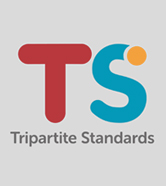
Tripartite Guidelines
Refer to the Tripartite Guidelines on Fair Employment Practices to ensure that you abide by the guidelines on all the relevant practices.
How to set up a grievance handling procedure to manage internal complaints effectively.
Grievance handling is the management of employee dissatisfaction or complaints (e.g. favouritism, workplace harassment, or wage cuts). By establishing formal grievance handling procedures, you provide a safe environment for your employees to raise their concerns. You also create a channel to explain your policies and rationale for actions or decisions.
As an employer, it is best to handle grievances in an amicable and supportive way to avoid unnecessary escalation and negative feelings. Grievance handling procedures also allow you to identify and address unacceptable or unlawful practices quickly.
The Tripartite Guidelines state what you must do as a fair employer.

Refer to the Tripartite Guidelines on Fair Employment Practices to ensure that you abide by the guidelines on all the relevant practices.
Here are some progressive employment practices you can consider. These are based on the Tripartite Standard on Grievance Handling, which you can adopt to distinguish your organisation.
Your procedure should outline:
Appointed staff should attend on-the-job training, workshops, courses, or briefing sessions on proper grievance handling. These can be held in-house or taught by an external vendor.
Your training should cover:
You may approach TAFEP for upcoming grievance handling workshops.
Clearly communicate the grievance handling procedure to all employees (e.g. through employee handbooks, orientation programmes, company circulars or memos).
If your organisation is unionised, you should state this procedure in your Collective Agreement (CA).
For more information on these practices:

If you already have fair and progressive employment practices, you can adopt the Tripartite Standards, an initiative to recognise organisations with good practices.
Advisory – Beware of scams and phishing emails
Send us feedback if you receive any suspicious or inappropriate emails asking for your personal information. The email may not have been sent by TAFEP. Do not click on any link or open any attachments. Your feedback can help us fight against scammers – contact us immediately.
We use cookies on tal.sg/tafep to provide a better user experience that's more tailored to you. If you continue, you are giving us your consent to receive cookies only on this site. To decline cookies at any time, simply adjust your browser settings. Read our Privacy Statement.